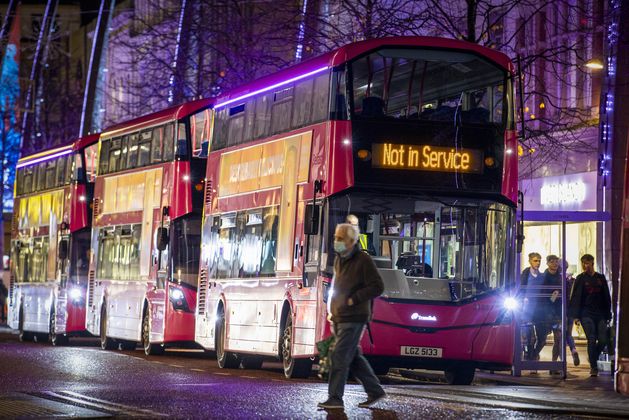Fares on both bus and rail services across Northern Ireland are set to increase from next month.
The price increases will impact on most fares across the Metro, NI Railways and Ulsterbus services, the transport operator said.
Translink said the increases will come into effect from Monday June 3.
The majority of passengers will see their fares increase by 6% on bus and 10% on rail.
In real terms, this means most Metro/Glider cash singles will increase by 10p, most Ulsterbus and Goldliner cash singles will increase between 10p and 50p depending on distance, and most rail cash singles will increase between 20p and £1.50 depending on distance.
This decision does not impact on cross border coach and rail fares.
The Consumer Council has criticised Translink’s decision to increase fares.
“The announcement today that Translink is to increase its average fares by 6% for bus and 10% for rail is a blow for public transport users,” Peter McClenaghan from the organisation said.
“This review comes on the back of an average 7% fare increase across all Translink services in March 2023 and rail fare increases in November 2023.
“It will disproportionately affect low-income passengers, who have no travel option other than public transport and who are already struggling with the ongoing cost-of-living crisis.”
Mr McClenaghan said he understands the impact the cost of living crisis and a lack of government funding has had on operating public transport in Northern Ireland, but claimed the company could do more to support consumers.
“Northern Ireland government funding of public transport must be adequate to maintain as a minimum the current level of service, but also fund incentives to increase passenger numbers where possible,” he added.
“This fare increase contrasts with initiatives elsewhere, such as the £2 bus fare cap in England and the 20 per cent discount for passengers in the Republic of Ireland (ROI) that recognise the benefits of public transport to society and the environment.
“This Translink increase could restrict growth in the number of people using public transport and conflicts with government policy to increase the number of people using public transport.”
The Consumer Council also suggested moves to increase a flat-fare rate across Belfast for buses to aid simplicity for passengers could inadvertently result in “some price increases above the average on certain ticket types”.
“Therefore, we urge Translink to introduce solutions that would offset these price increases, such as a weekly cap on contactless payments, as soon as possible to help address this,” he added.
To help combat the price hikes, Translink has encouraged customers to use their range of everyday value, discounted tickets and promotional fares available.
Passengers are also encouraged to use contactless, mLink and multi-journey products in order to get the best deal.
The company said the 25% discount will also continue to be available on off-peak travel after 9.30am on rail and Ulsterbus local services.
Its iLink cards also offer unlimited travel for various zones across the bus and train network.
Ian Campbell, Translink Director of Operations, said there are still many discounts available for passengers.
“We are maintaining the 50% discount along with free access to the yLink card for all 16 to 23 year olds,” he said.
“With over 60% more yLink journeys made over the last year, this special deal is helping many more young people to travel on bus and rail services, and make their money go further.
“We have also taken the opportunity to simplify Smartlink fares for Metro/Glider making it easier for our customers. Using Smartlink passengers will simply pay a £2 fare for any standard adult journey, saving for most people, over 10% compared to paying cash. The dayLink, mLink and contactless day tickets, will also move to £4.00 for all day travel.”
Mr Campbell said Translink will continue to work to make public transport an affordable option for commuters.
“We remain confident that bus and train travel is still the most attractive and cost-effective travel choice especially when compared to increasing private motoring costs,” he added.
“Combined with the many wider health and wellbeing benefits of sustainable travel, it’s also an easy way we can all do our bit for the climate crisis and improve air quality for a better-connected society for all.”

